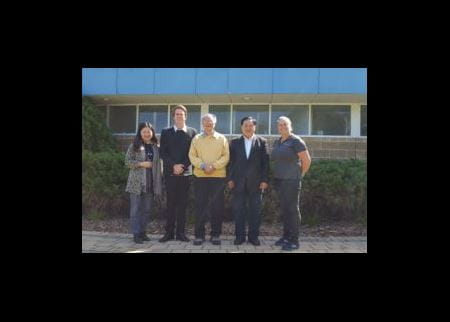 For those who are born and raised in Australia it’s easy to take our vast waterways, pools and love for water activities for granted. In fact, most of those who’ve grown up in WA over the past few decades have even received swimming lessons as part of the school curriculum.
For those who are born and raised in Australia it’s easy to take our vast waterways, pools and love for water activities for granted. In fact, most of those who’ve grown up in WA over the past few decades have even received swimming lessons as part of the school curriculum.
But for many of the more than 680,000 migrants living in Western Australia swimming and water safety education is something that isn’t prevalent in their country of birth, and sadly this is reflected in drowning statistics. For this reason Royal Life Saving Society WA’s Multicultural Steering Committee is determined to ensure all West Australians, no matter where they come from, learn vital swimming and water safety skills.
Recently WA’s lead Chinese association, Chung Wah, has taken a role on the committee, with Vice President William Chi a regular attendee at committee meetings. William says water safety is a major issue in his community.
“A lot of Chinese people don’t have much experience with water safety. Many never had any chance to swim in the homeland because there is no such facility. In China the rivers are only used for people with boats they’re not a swimming spot. This is the reason safety is a big issue when they come to Australia because we’re surrounded by sea, we have so many lakes, so many places with water and they don’t know how to swim, they have no idea about water safety
The first Chinese came to WA in 1836, and there are now about 140,000 ethnic Chinese in WA, coming from a range of countries - not just China - but Malaysia, Singapore, Thailand, Vietnam, the Philippines, and Hong Kong.
Dr Yow Yit Seng sits on the Chung Wah Council of Elders and says “Those second generation migrants who are born in Australia have no problem because they learn about water safety through school, through swimming lessons and so forth. The main issue lies with the first generation migrants because they have come from their homeland where there isn’t such a concept of water safety, there’s no programs in place and there are language barriers when they come here too.”
He adds “In Chinese culture there’s a lot of respect for water. There’s more respect for water than fire because water cannot be destroyed. It can change form - water, vapour, ice - but it cannot be destroyed. This can lead to many Chinese fearing the water and missing out on an important part of Australian life. When my kids were in primary school I could have put a pool in at my house but I didn’t because I was concerned about the safety aspect.”
Catherine Kuang, Chung Wah’s Marketing and Project Manager, agrees saying dragon boat racing, although a very popular part of Chinese culture, has had a low profile in WA in recent years. “I think one of the reasons why the Dragon Boat club stopped operating 20 years ago was that the parents were worried about children’s safety. But now a new committee team is coming through and encouraging more water sports so hopefully with Royal Life Saving’s help we can encourage more people to learn and get involved again. I’d like to see an ambassador trained up to be able to facilitate in their language to get them to understand water safety, first aid and lifesaving. If the parents understand and feel safe then the children will feel safe in the water.”
William Chi is determined to spread the water safety message across his community; “You are the first society to help us to build the knowledge to help our people. We are going to help our friends, members, families to know how to be water safe. Over our life we have multiple thousands of minutes, but under water you just have one and you will be gone. So that’s the very important message we need to get to our people.”